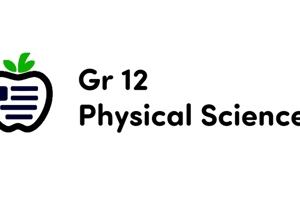Podcast
Questions and Answers
What is momentum in physics?
What is momentum in physics?
- The total force acting on an object
- The relationship between force and acceleration
- The total energy of an object in motion
- The product of an object's mass and velocity (correct)
Which principle states that an object's momentum is conserved in a closed system?
Which principle states that an object's momentum is conserved in a closed system?
- Archimedes' Principle
- Law of Conservation of Momentum (correct)
- Hooke's Law
- Newton's Third Law
How is Newton's Second Law of Motion rephrased in terms of momentum?
How is Newton's Second Law of Motion rephrased in terms of momentum?
- p = m * v
- F = ma
- F = m * v
- F = (p2 - p1) / Δt (correct)
In the context of Newton's Second Law in momentum form, what does Δt represent?
In the context of Newton's Second Law in momentum form, what does Δt represent?
If a force of 4000 N acts on an object for 5 seconds, what will happen to the object's momentum?
If a force of 4000 N acts on an object for 5 seconds, what will happen to the object's momentum?
Which term represents the initial momentum in the equation F = (p2 - p1) / Δt?
Which term represents the initial momentum in the equation F = (p2 - p1) / Δt?
What quantity do we need to find in order to calculate the net force using Newton's Second Law in momentum form?
What quantity do we need to find in order to calculate the net force using Newton's Second Law in momentum form?
What is the formula used to calculate the net force using Newton's Second Law in momentum form?
What is the formula used to calculate the net force using Newton's Second Law in momentum form?
How can Newton's Second Law in momentum form be applied in understanding the behavior of objects?
How can Newton's Second Law in momentum form be applied in understanding the behavior of objects?
What concept can be utilized to determine the final velocities of objects after a collision?
What concept can be utilized to determine the final velocities of objects after a collision?
What does Newton's Second Law in momentum form help us calculate in a collision scenario?
What does Newton's Second Law in momentum form help us calculate in a collision scenario?
Why is Newton's Second Law in momentum form considered a powerful tool for understanding object behavior?
Why is Newton's Second Law in momentum form considered a powerful tool for understanding object behavior?
Flashcards are hidden until you start studying
Study Notes
Newton's Second Law of Motion, also known as F=ma, is a fundamental principle in physics that describes the relationship between the force acting on an object and its acceleration. However, this law can also be rephrased in terms of momentum, which is the product of an object's mass and velocity. This form of Newton's Second Law is especially useful in understanding the behavior of objects in motion.
Momentum and Newton's Second Law
Momentum, denoted as p, is defined as the product of an object's mass (m) and velocity (v):
p = m * v
By definition, an object's momentum is conserved in a closed system, meaning that the total momentum before an event is equal to the total momentum after the event. This principle is known as the Law of Conservation of Momentum.
Newton's Second Law in momentum form can be expressed as:
F = (p2 - p1) / Δt
where F is the net force acting on the object, p1 and p2 are the initial and final momenta, respectively, and Δt is the time interval. This equation indicates that the force required to change an object's momentum is proportional to the change in momentum and inversely proportional to the time interval.
Example of Newton's Second Law in Momentum Form
Consider a 1000 kg car that is initially at rest. A force of 5000 N is applied to the car, and after 2 seconds, the car moves at a velocity of 15 m/s. To calculate the net force using Newton's Second Law in momentum form, we need to find the changes in momentum:
p2 = m * v2 = 1000 kg * 15 m/s = 15,000 kg*m/s p1 = 0 (since the car was initially at rest)
Now, we can plug these values into the equation:
F = (p2 - p1) / Δt = (15,000 kg*m/s - 0) / 2 s = 7500 N
This indicates that the net force acting on the car is 7500 N, which is consistent with the 5000 N force applied to the car.
Applications of Newton's Second Law in Momentum Form
Newton's Second Law in momentum form is particularly useful in understanding the behavior of objects in motion, such as projectiles, collisions, and systems with multiple objects. It can help us determine the forces and momenta involved in various scenarios, providing insight into the dynamics of these systems.
For example, in the context of a collision between two objects, we can use the conservation of momentum to determine the final velocities of the objects after the collision. By applying Newton's Second Law in momentum form, we can also calculate the forces involved in the collision, which can help us understand the dynamics of the system.
In conclusion, Newton's Second Law in momentum form is a powerful tool for understanding the behavior of objects in motion. By rephrasing the law in terms of momentum, we can gain valuable insights into the dynamics of various systems and apply this knowledge to solve a wide range of physics problems.
Studying That Suits You
Use AI to generate personalized quizzes and flashcards to suit your learning preferences.




